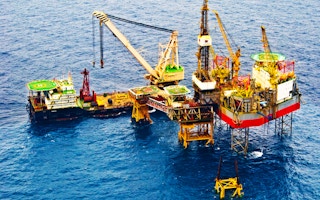Big Oil (and its gas and coal counterparts) could before long face paying for the carbon contained in the fuel they sell. Two groups working for a cleaner future want to see a levy imposed on fossil fuel exploitation.
A 2013 report said almost two-thirds of the main greenhouse gas going into the atmosphere, carbon dioxide, came from the fuels produced by a mere 90 companies.
The UN Framework Convention on Climate Change (UNFCCC) summit here is in the final hours of its attempt to broker a just and effective global treaty on reducing those emissions and limiting their impacts: extreme weather, drought, flooding, sea level rise, land and forest degradation, desertification.
Pressure is growing to work out if and how these big fossil fuel producers can be held financially responsible for the damage their products are causing.
The 90 fossil fuel companies responsible for 63 per cent of CO2 emissions from human activities are a roll call of household names, including Chevron, ExxonMobil, Saudi Aramco, BP, Gazprom and Shell.
Now the Climate Justice Programme and the Heinrich Boell Foundation are urging that producers should pay a carbon levy on all fossil fuel extraction and mining, with the proceeds going to help pay poorer countries for adapting to climate change and meeting the costs of its impacts.
“
We propose that a global fossil fuel extraction levy be established and paid into the international Loss and Damage Mechanism. This funding would be used to assist the poorest and most vulnerable communities suffering the worst impacts of climate change.
Julie-Anne Richards of the Climate Justice Programme
Phase-out needed
The levy would be applied to both the exploitation and the burning of fossil fuels. If a company was involved in both, it would have to pay the levy only once.
It would charge the carbon majors US$2 for every tonne of carbon dioxide their products release into the atmosphere. In 2014 this would have meant $50 billion coming from the companies.
The levy is based on a calculation of how much CO2 is released on average from burning a barrel of crude oil (or a tonne of coal, or a cubic metre of natural gas). The CO2 footprint of the drilling or mining itself would not be taken into account.
“We propose that a global fossil fuel extraction levy be established and paid into the international Loss and Damage Mechanism. This funding would be used to assist the poorest and most vulnerable communities suffering the worst impacts of climate change”, said Julie-Anne Richards of the Climate Justice Programme. “This levy needs to be part of a general phase-out of fossil fuels.”
Precedents
The UNFCCC’s Loss and Damage Mechanism emerged from the 2013 climate summit in Warsaw. It is a way to address those climate impacts to which it is impossible to adapt, including extreme events.
“Climate finance is already inadequate – with a huge gap between what is needed and what is being offered. A new source of finance from a levy on Big Oil, Coal and Gas could unlock some of the objections by rich countries to including loss and damage in a new Paris agreement”, said Lili Fuhr from the Heinrich Boell Foundation.
The Climate Justice Programme is convinced that existing international law, in particular the polluter pays principle, the no harm rule and the right to compensation support such a system.
“Our proposal draws from precedents such as the International Oil Pollution Compensation Funds, the oil spill compensation regime which collects levies from companies that ship oil internationally which are used as compensation after oil spills”, said Julie-Anne Richards.
The fossil fuel industry has so far given no reaction to the levy proposal.










